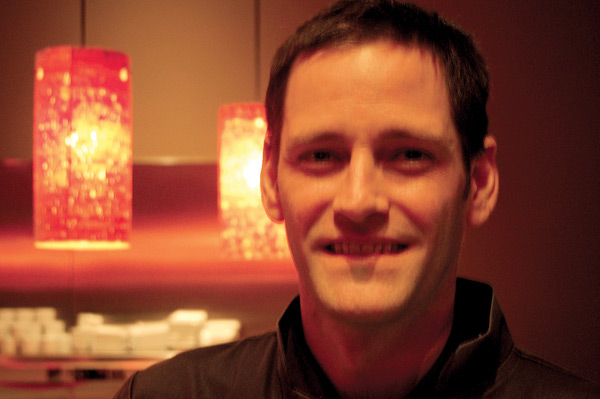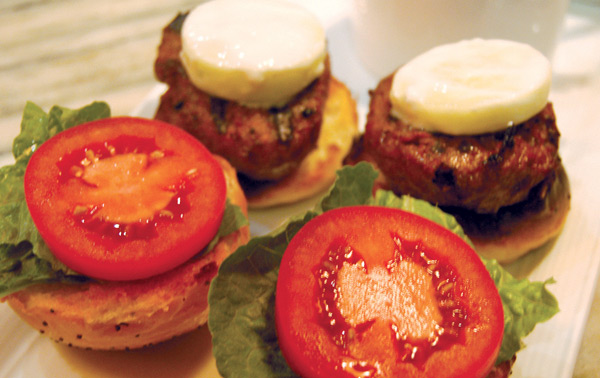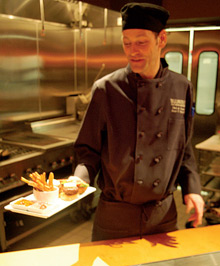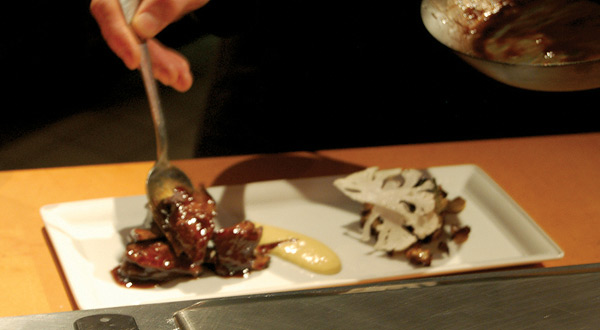
A couple of weeks ago, John Seymour-Anderson visited Chef Jesse Spitzack at Graves 601 Bradstreet Crafthouse in search of some candid reflections on lamb. This story is sponsored by Shepherd Song Farm. Some of John’s notes follow below.
Judy and Larry Jacoby, owners of Shepherd Song Farm, and I hoped to learn more about Spitzack’s perspectives on lamb, which we knew is a favorite of his, and the experiences that led him to choose and retain Shepherd Song Farm as his exclusive source for lamb.

“I love lamb… And this lamb is so much better.”
—Chef Jesse Spitzack
Lucky for me, the conversation began at the Bradstreet’s chef’s counter. Jesse prepared a beautifully presented sampling of the two lamb appetizers he offers there — Lamb Riblets and Lamb Sliders. Thus, my interview with him turned into a lively chat over a delectable lunch.

The interview excerpt on this page features only a few representative topics. So, please keep in mind that the entirety of the interview appears on the Shepherd Song Farm web site. We hope you’ll click the link and enjoy Jesse’s colorful, wide-ranging reflections on lamb, cooking, local food, and the common sense of sustainability.
JOHN SEYMOUR-ANDERSON: Do you remember watching the preparation of lamb — by another chef who was sort of a mentor to you?
JESSE SPITZACK: Well, at the Jardin de Sens in Montpellier [France], I worked at, the chef there prepared lamb chops also. He would French them [remove all meat from the exposed part of the rib bones] down to the meat of it — to the eye of it. It was just beautiful. He would prepare it with this reduction sauce. It was this gorgeous, gorgeous thing. Medium rare, of course.
JSA: How do you view the importance of local ingredients here at the Crafthouse?
JS: Local ingredients… I mean how did we stop doing local ingredients is what I want to know? Who ever came up with that idea? …It’s good to work chef to grower. I really like that… I think it supports, obviously, the local economy. That’s a fiscal reason for it. An economy that’s kind of circular. He [the farmer] might not come to my restaurant, but his kids might, or his friends might, and the people he buys stuff from might. You know, it all circulates. The closer you are together, I think, the better, cuz you’re going to kinda grow as a group. It’s a group thing. Everyone kind of works together to make a community stronger.

JSA: What about the [Shepherd Song Farm] lamb itself distinguished it when you chose it over the others you had been using?
JS: The color, the red, nice deep color. The fat, the color of the fat wasn’t yellow. I don’t know how to explain it, kind of yellowy like that wall there. (laughter) No, it was bright, it was clean looking, there was good separation.
JSA: Of the meat and fat?
JS: Of the meat and fat. Then, flavor-wise you could tell it was quality.
